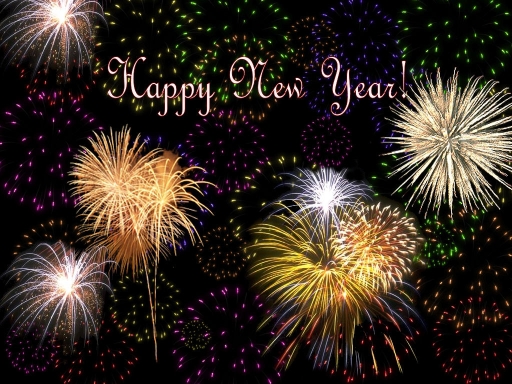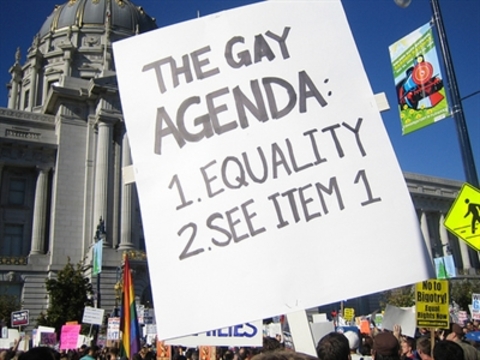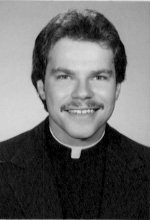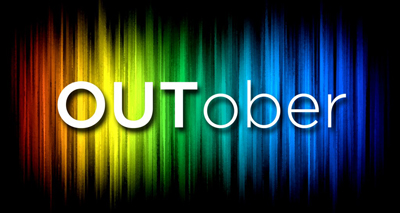Conscience Magazine; The News Journal of Catholic Opinion reviews my book
I’m delighted to announce that Conscience Magazine reviewed my book.
Click on the Conscience logo above to view the blurb in the Bookshelf sidebar.
———————————————————————————————————————————
Angels We Have Heard on High
Human Rights, Sexual Rights and World AIDS Day
World AIDS Day brings into focus the micro-strategies needed to combat a macro problem.
The theme for World AIDS Day 2011 is ‘Leading with Science, Uniting for Action’. Coincidently, later this month, December 10th to be precise, we will commemorate Human Rights Day. This is the 63rd anniversary of the adoption, by the United Nations General Assembly, of the Universal Declaration of Human Rights in 1948.
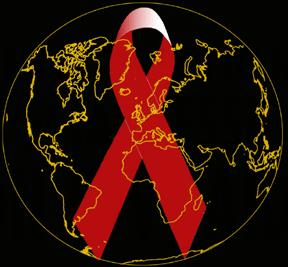 The promotion and protection of human rights has been a major preoccupation for the United Nations since 1945, when the Organization’s founding nations resolved that the horrors of The Second World War should never be allowed to recur.
The promotion and protection of human rights has been a major preoccupation for the United Nations since 1945, when the Organization’s founding nations resolved that the horrors of The Second World War should never be allowed to recur.
Respect for human rights and human dignity “is the foundation of freedom, justice and peace in the world”, the General Assembly declared three years later in the Universal Declaration of Human Rights.
The Universal Declaration of Human Rights is the foundation of international human rights law, the first universal statement on the basic principles of inalienable human rights, and a common standard of achievement for all peoples and all nations.
In a world wracked by poverty, disease and war; where we threaten our very existence with climate altering pollution, nuclear proliferation and extreme population growth; is there room to talk about human rights that include sexual rights?
I emphatically say yes! In fact, I assert that sexual inequality and oppression is at the heart of many of the world’s problems. I contend that trying to address human rights without including the essential component of sexual rights is ultimately doomed to failure.
An absence of sexual rights leads to domestic and societal violence; human trafficking; suicide; a rise in Sexually Transmitted Infections (STIs) including HIV/AIDS; unplanned pregnancies, abortion, and sexual dysfunction.
You know how we are always being encouraged to Think Globally and Act Locally? Well, on this World AIDS Day while we busy ourselves with local concerns, I think we’d do well to focus some of our attention on what intricately binds us to the rest of the human community.
I offer three examples of what I’m talking about. I invite you to consider how a myopic HIV/AIDS treatment and prevention effort, when divorced from the overarching issues of human, economic, social and sexual rights often make our efforts ineffectual and, in some cases, even counterproductive.
***
A couple of years ago the research community was all aflutter about ‘conclusive’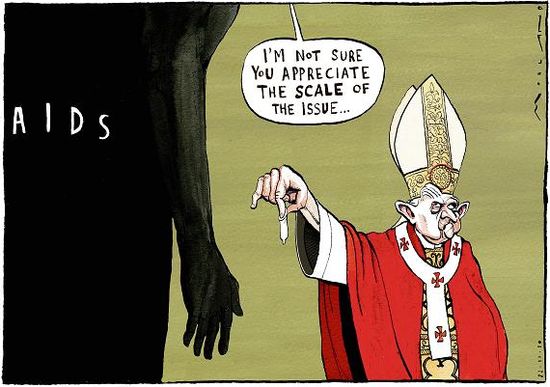 evidence linking HIV transmission and uncircumcised males. While I’m certainly not ready to take this data on face value, let’s just say, for the sake of discussion, that the link is conclusive. A massive campaign of circumcision was proposed as the best means of HIV prevention. The medical community would descend on epicenters of the disease, scalpels in hand, ready to eliminate the offending foreskins from every male in sight, young or old.
evidence linking HIV transmission and uncircumcised males. While I’m certainly not ready to take this data on face value, let’s just say, for the sake of discussion, that the link is conclusive. A massive campaign of circumcision was proposed as the best means of HIV prevention. The medical community would descend on epicenters of the disease, scalpels in hand, ready to eliminate the offending foreskins from every male in sight, young or old.
But wait, there’s a problem. Most HIV/AIDS epicenters are in underdeveloped countries. In these places, access to enough clean water to attend to even the most basic personal hygiene, like daily cleaning under one’s foreskin, remains an enormous chronic crisis. Without first addressing the problem of unfettered access to clean water and adequate sanitation, which according to The United Nations is a basic human right, further disease prevention efforts are doomed.
I mean, what are the chances that surgical intervention would succeed—one that would involve significant and sophisticated aftercare; especially if there’s not even enough clean water for bathing?
These well-meaning medical personnel suggest imposing a strategy that not only works against nature—our foreskins do have a purpose after all: a healthy prepuce is a natural deterrent to infection. But this intervention would also violate long-held cultural and societal norms—circumcision is abhorrent to many of these same cultures. Wouldn’t this proposed prevention effort to stem the tide actually make matters worse?
***
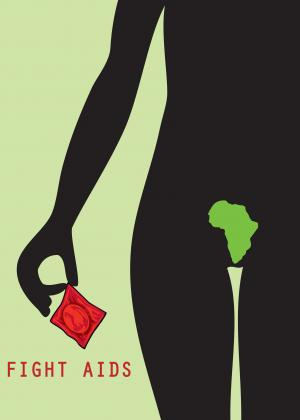 Other epicenters of the global HIV/AIDS pandemic are associated with indentured sex work. Until the economic and educational opportunities for women throughout the world improve—which is a basic human right according to The United Nations—women will remain chattel. Families in economically depressed areas of the world will continue to be pressured to sell their daughters (and sons) simply to subsist.
Other epicenters of the global HIV/AIDS pandemic are associated with indentured sex work. Until the economic and educational opportunities for women throughout the world improve—which is a basic human right according to The United Nations—women will remain chattel. Families in economically depressed areas of the world will continue to be pressured to sell their daughters (and sons) simply to subsist.
Closing brothels and stigmatizing prostitutes as a means of disease prevention overlooks the more pressing human rights concerns at play here. Sex is a commodity because there is a voracious market. Men from developed nations descend on the populations of less developed nations to satisfy sexual proclivities with partners they are prohibited from enjoying in their own country. Young women (and boys) in developing countries are viewed as exploitable and disposable, because they don’t have the same civil protections afforded their peers in the developed world. And runaway population growth in countries that deprive their women and girls access to education and contraception inevitably creates a never-ending supply of hapless replacements.
Addressing the endemic gender inequality in many societies is key. Equal access to education and economic resources must come before, or at least hand in hand with any serious sexually transmitted infection prevention effort.
***
Finally, people in the developed world enjoy a certain level of affluence and economic stability which allows them to indulge in sex recreationally. Thanks to effective birth control methods we can ignore the procreative aspects of sex and replace it with a means of expressing a myriad of other human needs. Not least among these are status, self-esteem and self-expression.
If we’re trying to prove something to ourselves, or others, by the way we conduct our sexual lives, simple prohibitions against certain sex practices won’t work. If I’m convinced that unprotected sex with multiple partners and sharing bodily fluids is edgy, cool fun, without serious consequence, as it’s portrayed in the media (porn); I will be more likely to express myself the same way. This is especially true for young people who are already feeling invincible.
Case in point: there has been a startling uptick in seroconversions among young people, particularly gay men, which indicates that disease prevention efforts, even in the world’s most affluent societies, are simply not up to the task. It’s not that there is a scarcity of resources, quite the contrary. It is more likely that these efforts are not connected to a fundamental understanding of the role sexuality plays in the gay community (and increasingly among non-gay people). I believe that sexual expression and sexual pleasure are the overarching issues here. These too are fundamental human rights.
Bareback (condomless) porn went from being a pariah genre on the periphery of the gay porn industry just a few years ago, to the hottest, most prolific and biggest moneymaking genre today. It’s no accident or coincidence that this surprising reversal coincided with this the increase of HIV/AIDS infections in certain populations. I hear from people all the time, from those inside as well as outside the porn industry, who tell me that it’s their prerogative to engage in unprotected sex. “I have the right to express myself that way,” I am often told. “If one has the bad luck to seroconvert, it’s just that, bad luck. After all, HIV is now a manageable chronic condition, not unlike diabetes,” or so the reasoning goes. So I should just get over it and mind my own business.
No amount of safer sex proselytizing is going to overcome this kind of resistance. I propose we need to look at why and how we express ourselves sexually. As we unravel this complex jumble of motivations and behaviors, effective prevention strategies will manifest themselves clearly. We must develop a sex-positive message; one that celebrates sexuality, builds self-esteem and counteracts the prevailing media messages of sex with no consequences.
***
World AIDS Day brings into focus the micro-strategies needed to combat a macro problem. But it also shows that we cannot fight this, or any disease, in a vacuum. It’s imperative that we see how global health and wellbeing is completely dependent on basic human rights, including sexual rights that include gender and reproductive rights, the elimination of sexual exploitation and the freedom of sexual expression.
Human rights that include sexual rights encompass the goals of World AIDS Day—increasing awareness, fighting prejudice and improving education. But applying these principles must cover the full spectrum of human sexuality, gender equality, reproductive health and, dare we say it, pleasure. To repeat the General Assembly declaration; Respect for human rights and human dignity “is the foundation of freedom, justice and peace in the world.”
The best reasons for marriage equality that you will ever see
Do you know where you were…
The Dark Heart of Homophobia
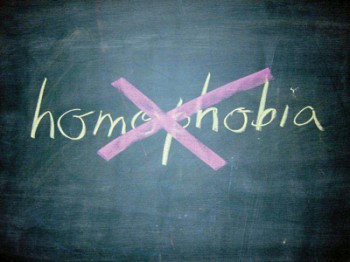 I’m riding the bus when we come to a stop near a local high school. Five teenage boys get on. They are all jocks—football, probably. Their jackets are emblazoned with varsity letters and they appear to be fresh from practice. Each carries an oversized duffel.
I’m riding the bus when we come to a stop near a local high school. Five teenage boys get on. They are all jocks—football, probably. Their jackets are emblazoned with varsity letters and they appear to be fresh from practice. Each carries an oversized duffel.
They are boisterous and full of menacing bravado. The bus is immediately overwhelmed with a rush of testosterone. As they move toward the back of the bus, they purposely jostle everyone in their path. They are rude and crude and every other word is fuck.
The bus lurches forward, and my fellow passengers instinctively know not to make eye contact. The older women clutch their belongings tight to their bosom. Everyone is tense.
The pack mentality emboldens the young men, who are flush with their newly discovered sense of male privilege. Hormones rage in their adolescent bodies, yet there is an awkward childishness about them too. They are alpha, but only in as much as they are part of a pack.
They have off-color comments for everyone around them. Girls are singled out for the most abuse. They make insinuations about their sexual prowess, while pawing at their groins. The women blush with embarrassment.
Despite being loud, obnoxious and brutish, they lack conviction. They giggle too much, indicating self-consciousness. It’s apparent that, at their core, they are still very uneasy about themselves, and have yet to grow into and own the alpha maleness they mimic.
The bus approaches the next stop, and several of us get up to exit. A nerdy boy with glasses and a violin case accidentally trips over one of the teen’s duffel bags. This is the spark. The jocks erupt, lunging at the offending kid. He is easy prey. He’s petrified, but his survival instincts kick in, and he quickly maneuvers further up the aisle. I grab his shoulder and push him toward the door ahead of me. He makes his escape.
Now I’m in the line of fire. The rear door is only a couple steps away, but I stand my ground. The jocks size me up. I’m not an easy mark; I’m older and more dominant than any of them as individuals, but they trump me as a group. I may even be dangerous. In a split-second, the teens reevaluate the situation and instead of coming at me, they try to take me down with their best verbal shot: “You motherfucking fag!”
I move to the door. This could end very badly for me, but I will not show any weakness. Adrenaline courses through my bloodstream. I alight from the bus, holding the door open so I can briefly yell back. “Hey, thanks for the recognition. Oh, and for your information, its father-fucking, brother-fucking and/or son-fucking fag, never mother-fucking. Get it?”
By the time the jocks realize what’s happened, the bus is in motion, and I am safe.
The teens thought better of physically attacking me, so they did the next best thing. It’s what most threatened males do: they tried to diminish the threat by calling into question my masculinity. And they do it in that time-honored way—by inferring I was a defective male, a queer, and a sissy. Trouble is, I am queer, and I owned it—right in their faces. On top of that, I stood up to them and even had the temerity to publicly shame them. So that had to be unsettling to them on several levels.
How did the derogatory epithet fag become the quintessential means of destroying the male ego? Why has the only somewhat less offensive slur, “that’s so gay,” become emblematic for everything stupid, negative or girly? These questions get to the root of our culture’s deeply ingrained homophobia.
I contend that homophobia is rooted in a fear and hatred of women. It’s no accident that when we want to denigrate a man we call him a pussy—the same word we use to refer to female genitals. In our culture, men are superior to women—it’s the oily by-product of male privilege. A man who falls short of this lofty ideal, or, god forbid, assumes a passive role in sex, cheapens the “privilege” for all other males. This is a particularly sensitive issue for ostensibly heterosexual men.
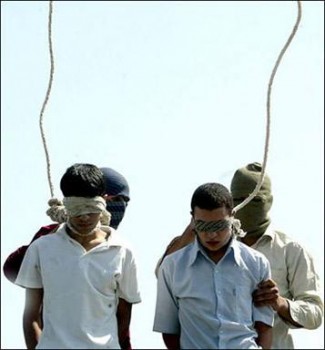 This prohibition is so deep-seated in our culture, one can trace its roots back to the Bible. Leviticus 20:13: “If there is a man who lies with a male as those who lie with a woman, both of them have committed a detestable act; they shall surely be put to death.” In biblical days, women were nothing more than chattel. For a man to behave like a woman—particularly in a passive, receptive sexual way—back then was an even greater insult to the male privilege than it is nowadays (which explains the whole capital punishment thing.)
This prohibition is so deep-seated in our culture, one can trace its roots back to the Bible. Leviticus 20:13: “If there is a man who lies with a male as those who lie with a woman, both of them have committed a detestable act; they shall surely be put to death.” In biblical days, women were nothing more than chattel. For a man to behave like a woman—particularly in a passive, receptive sexual way—back then was an even greater insult to the male privilege than it is nowadays (which explains the whole capital punishment thing.)
Women are also objectified as sexual objects before men dominate them. A woman is not so much a person as she is a collection of parts—tits, pussy, ass, etc. A heterosexual man, familiar with and practiced in this dynamic, will not tolerate another male objectifying him as a sexual object, either real or imagined.
These cultural triggers are exceptionally easy to trip. With very little effort at all, we can debase a man simply by suggesting that there’s a whiff of the feminine about him or that his cock is small. In turn, the slandered male is burdened with proving the contrary, which often leads to overcompensation. To deflect suspicion, some men affect a macho bravado so as to appear even more masculine than their peers. And how better to do that than to suggest someone else is a pansy?
I can say for certain that all those boys on the bus had been, at one time or another, accused of being a fag. It’s exceedingly common in sports for even teammates to insinuate a fellow athlete is not performing up to expectations. Each of them must have known the sting of that reproach. Some may even have had self-doubt about their own sexual tendencies. That’s why they hurled at me what they knew would hurt any other self-respecting male the most.
What they didn’t count on was that I had, long ago, inoculated myself against this poison. I own, even revel, in my queer sexuality. An insult doesn’t work if the one insulted self-identifies as the slur.
Institutionalized homophobia, on the other hand, is more insidious. The dominant culture enshrines male privilege and, like the boys on the bus, punishes anyone who attempts to undercut the paradigm. Discrimination is so widespread, ingrained—and sometimes so subtle—that many non-gay people don’t even notice most of it. But those of us on the receiving end of the bigotry are keenly aware.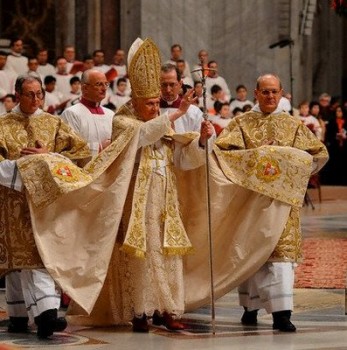
It’s a particularly acute problem for young people who know they are different, and different in a way that isn’t tolerated of by the dominant culture. They are much more vulnerable because they have yet to developed the emotional resources to counteract the oppression. They don’t yet realize that it’s society’s problem, not theirs. Their peers mercilessly persecute them. And for the most part, authority figures don’t even try to stop the torment. That’s why young gay people commit suicide at a rate of about seven times that of straight kids.
You may have noticed that I’ve framed this presentation in terms of the natural world. Dominant and submissive behaviors in other species often have sexual overtones, especially in other primate species. A dominant male will harass a male subordinate until he submits and presents his rump. This establishes a pecking order in the troupe: a subordinate male is submissive and the dominant male is in control.
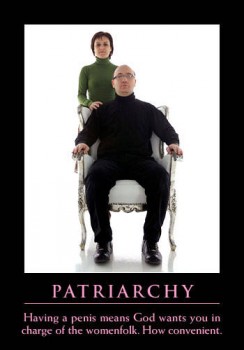 Some straight men see gay men as a threat, instinctively fearing a supposed challenge to the established order of things; who is in control. It’s basically a struggle for dominance and troupe status. A gay person who is a productive member of society, who is indistinguishable from his heterosexual counterparts, ups the ante. He’s a threat to anyone who believes what he has been told all his life—that gays are perverted, miserable, lonely people who live short, desperate lives.
Some straight men see gay men as a threat, instinctively fearing a supposed challenge to the established order of things; who is in control. It’s basically a struggle for dominance and troupe status. A gay person who is a productive member of society, who is indistinguishable from his heterosexual counterparts, ups the ante. He’s a threat to anyone who believes what he has been told all his life—that gays are perverted, miserable, lonely people who live short, desperate lives.
Institutionalized homophobia impacts so many aspects of our culture. It may be obvious how it skews our notions of sex and sexuality, of who can do what to whom and when. But did you know that it is often an underlying cause of much male sexual dysfunction? It also contaminates national policy in terms of public health issues, military readiness and the rights and freedoms we afford our citizenry. Most religious traditions force their priests, ministers and religious women and men to live duplicitous lives, which contradict the basic tenants of every religion. The business sector also suffers. Harassment and intimidation of gay workers result in loss of productivity costing businesses millions every year. But the most tragic is the toll it takes on individual relationships. Families are torn apart, friendships end, and people sometimes are killed or kill themselves over a futile and misguided attempt to uphold the status quo.
Come Out, Come Out Wherever You Are!
Imagine what our Church would look like if all us LGBT clergy, religious and parishoners decided to come out.
Just in time for National Coming Out Day, which just so happens to be today, October 11th, we have this from Craig:
Doc,
I’m 19, and I’ve decided that I’m gay. But I don’t know how to tell anyone. I’m afraid that I’ll lose my friends and family. I come from a very religious family, and they’ll never understand. I don’t want to hurt them, but I want to be honest about who I am. Just wondering if you could help me.
Coming out is never easy—or almost never—but having to do so to bigoted people makes things worse. There are many different aspects to the coming out process. It means both owning and valuing who you are, and sharing that information with others. You’ve apparently laid the groundwork by self-identifying as gay. Unfortunately, coming out also means learning to deal with the hostility many people have toward us sexual minorities.
Owning your sexual identity and integrating it into your overall sense of self is the first step in what I believe is a lifelong process. Your sexual preferences are just a small part of who you are. It is indeed an important part, but it’s not necessarily the defining element that some would make it out to be. In this instance, LGBT folks are not all that different from everyone else who is awakening to his/her sexuality. We can take some comfort from the fact that we are not alone. So many other segments of the population are marginalized and discounted because of their race, gender, age, religion, ethnic origin, you name it. Let’s face it, pup, our culture doesn’t do real well with diversity.
And ya know what else? There are a whole lot of us who are marginalized and who are discriminated against, who then turn right around and discriminate against and marginalize others. This just breaks my heart! Hopefully you’ll avoid the temptation to do this yourself.
Being different in our society is a double-edged sword. Obviously, it’s a challenge to the status quo, but it also frees us up to tread a less traveled path. To compensate for the difficulties of being a minority, we get to define ourselves in ways that are unavailable to the dominant culture.
I don’t suppose any of us is ever entirely really free of our own internalized homophobia, any more than other marginalized minorities can rid themselves of their internalized self-doubt. No one can completely escape the prejudices and biases that surround them, but most of us make our way, regardless. That’s why coming out is so important. It empowers us. It increases our self-esteem. Honesty increases personal integrity. And when we stop hiding or denying this important aspect of ourselves, we have greater freedom of self-expression, and we become more available for happy, healthy and honest relationships.
So, how much do you know about LGBT history? Knowing that you belong to a big and vibrant community with a long and illustrious history will enhance your queer identity. You’ll find positive role models in every era of human history, and in every human endeavor—and affirmative role models will help you achieve a positive sense of self. (However, you’re gonna have to do some digging. The dominant culture suppresses queer history, which often leaves those who are just coming out feeling isolated, alone and unsure. Fear of rejection from the dominant culture is greatest for those who don’t know they belong to something bigger and stronger than themselves.)
Knowing your gay history will also give you ammunition to refute those around you who will try to  label you as sick or sinful. Loads of LGBT folk have enriched civilization through science, religion, music, politics, art, theater, sports and literature, to name just a few. Long before you and I showed up on the scene they were paving the way for the freedoms and tolerance we currently enjoy in this country.
label you as sick or sinful. Loads of LGBT folk have enriched civilization through science, religion, music, politics, art, theater, sports and literature, to name just a few. Long before you and I showed up on the scene they were paving the way for the freedoms and tolerance we currently enjoy in this country.
If you’re not already involved in your local gay community, it’s high time you got hooked up. Practice your coming out skills with other LGBT people. Coming out to those who are most likely to be supportive will make this phase easier. And in doing so, you’ll be creating a natural support system of friends who will be your gay “family.” You will also find helpful resources, including support groups, crisis lines, gay-friendly churches and synagogues, social outlets and political and cultural activities and organizations.
Once you’ve honed your coming out skills with the queer community, you’ll be ready to move on to straight folks. This will probably be a mixed bag. Some won’t give a hoot. Others may have a lot of hoot to give. The best advice I can give you is the same advice I received from my gay elders when I was coming out at about your age: Make your coming out a celebration.
Listen, if you carry your hat in your hand, shuffle your feet and look all dejected when you make your announcement, your audience will have little choice but to receive the information as bad or troubling news. However, if you stand up, look the person in the eye, and tell her or him that you have some wonderful news to share with them, you will be giving them a running start on receiving the information as good news. Besides, a positive presentation will help short-circuit some of the initial shock or confusion they may experience.
Expect that most straight folks—particularly those of a religious bent—will need some time to get used to the idea of you being queer. And as you suggest, it is quite possible that some family members or friends may reject you initially. But it’s not the end of the world, and lots of people, even some religious folks, come around in their own sweet time.
Coming out to others will be a more positive experience if you’re comfortable in your own skin. Hopefully you’re not overly dependent on others for your sense of self—a tall order for someone of your tender age and background. But remember, thousands of people, young and old from every corner of the world, are making their first tentative steps out of the closet right this minute. You are not alone.
How well you do fare may ultimately hinge on controlling, as much as possible, the time and place you come out. If you “out” yourself as opposed to being “outted” by someone else, you’re more likely to succeed. Being able to judge the receptiveness of your audience is also important. The best time for you might not necessarily be the best time for the person you’re about to tell. (F’rinstance, grandpa’s funeral may not be the ideal time to announce to your family that you’re a big fat flamer.)
While some friends and family may have figured you’re queer long before you have, give everyone the time and space he or she needs to work through the news. Be prepared for some negative reactions. (Having some supportive friends available to talk things through afterward, or retreat to, will help.) If you do your best to bring the news in a life affirming way and your audience still rejects you, that’s not your fault; nor does that make them right. You have the right to be who you are. You have the right to be out, proud and open about all the aspects of your life, including your sexuality. Never let people unable to accept that, even if they are family, diminish your self-worth.
Coming out may be difficult, but it’s also very rewarding. Coming out affirms your dignity, as well as underscores the dignity of other queer folk. Finally, never take for granted the freedom and tolerance the dominant culture begrudgingly gives us. It’s only through vigilance and political action that we secure our rightful place in society.
Good luck.
Sacred Cows
Part 3 of a 5-Part Series — Understanding Catholic Moral Theology
The most contentious hot button issue for the Roman Catholic hierarchy today is gay marriage. The pope and his bishops stand united, at least publicly, in vehement opposition. But that’s as far as the unanimity goes. Your typical church going lay Catholic isn’t all that up in arms about gay marriage. Surveys show that Catholics are more accepting of LGBT people than any other Christian group. According to a May 2010 Gallup Poll; 62 percent of Catholics said gay and lesbian relationships are morally acceptable. That’s a 16 percent increase from just four years earlier.
Why the big disconnect between the leadership and the laity? Good question. First off, the Magisterium, the teaching authority of the Church, is in a dogmatic bind. The procreative nature of sex is the bedrock issue of Catholic sexual morality. There can be no legitimate expression of sex outside the confines of heterosexual marriage. And even within a marriage, all sexual expression must be open to procreation. (See last week’s article — Sins Of The Flesh)
The Church leadership opposes homosexual activity because it is “intrinsically disordered and an abuse of our human nature.” And marriage is “a conduit through which God’s grace flows to the couple and their children.” So you can see that in the mind of the bishops, the two concepts “gay” and “marriage” are really mutually exclusive. That’s why they use what little moral authority they have left after the clergy abuse scandals and their always deep pockets (Where does that endless supply of money come from anyway?) to push for bans on same-sex marriage and even civil unions in states from California to Maine.
The bishops argue that the law influences what is socially permissible and acceptable. “In effect, giving same-sex unions the legal status of marriage would grant official public approval to homosexual activity and would treat it as if it were morally neutral.”
But there is a growing groundswell of vocal Catholics urging mutiny against the hierarchy on this issue. Much like in the early 1970’s when activists formed Dignity, a worship-based support system for gay Catholics; Equally Blessed, a coalition of faithful Catholics who support full equality for lesbian, gay, bisexual and transgender people both in the church and in civil society was born September 2010.
The majority of lay Catholics are at loggerheads with the hierarchy because the two groups keep talking past each other. The bishops insist on defending their interpretation of the unique meaning and purpose of marriage, i.e. “a faithful, exclusive lifelong union of a man and woman” who “commit themselves completely to each other and to the wondrous responsibility of bringing children into the world and caring for them.” And lay activists focus on compassion and human rights. Each group believes the other is missing the point.
It’s not surprising then that public relations snafus, like the one that happened last September, occur. Archbishop John Nienstedt, of the Saint Paul and Minneapolis archdiocese, and his fellow bishops in Minnesota mailed out 400,000 DVDs, explaining the Church’s position on the institution of marriage. Every registered Catholic family in their state received one. The bishops said that the DVD simply defended the Church’s position, but most people saw it as a ham-fisted attempt to influence the upcoming election. This sparked an equally high profile ”Return the DVD” campaign, which questioned the priorities of bishops and planed to make art from the returned DVDs. The faithful asked; How could the over $1 million spent to distribute these DVDs have benefited the poor?
As one would expect, the American Catholic hierarchy is playing hardball. They simply will not countenance decent. Pro-gay priests are being silenced or removed from ministry. Inclusive worship communities, like Dignity, have been exiled from Church property. Organizations like New Ways Ministry, a gay-positive ministry of advocacy and justice for lesbian, gay, bisexual, and transgender Catholics, has been vilified and their loyal opposition denigrated. Even the artist who suggested the DVD sculpture in Minnesota was suspended from her artist-in-residence job at the Basilica of St. Mary in Minneapolis. And some of the lay faithful are being denied the sacraments for their conscientious objection to this church teaching.
This is pretty much business as usual for Church leadership. But the opposition shows no sign of caving. If anything they appear emboldened by the example of nuns who broke with the Catholic bishops by supporting the health-care overhaul Congress passed in March 2010.
In the end, a detente will no doubt settle in as it has in all the countries that have already adopted same-sex marriage — Argentina, Belgium, Canada, Iceland, Netherlands, Norway, Portugal, South Africa, Spain and Sweden. In the meantime, however, American Catholics of conscience know that they are in the midst of a struggle every bit as significant as the struggle against segregation. For them sexual orientation is as much a part of a person’s identity and humanity as the color of a person’s skin or his/her gender. Clearly they have plenty of work ahead of them as they demand the Church leadership to live up to the most basic standards of human decency.
Author Kay Jaybee Reviews My Book
Another review of my book, this time in marvelous E-zine — Oysters & Chocolate.
Click on the O&C logo above to view the interview.
———————————————————————————————————————————

